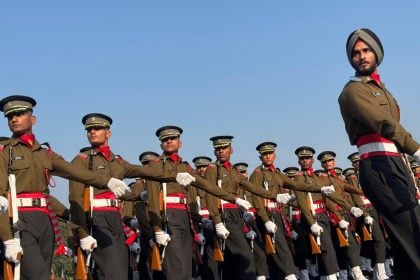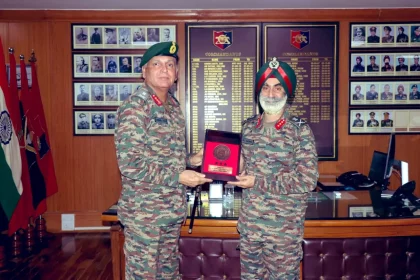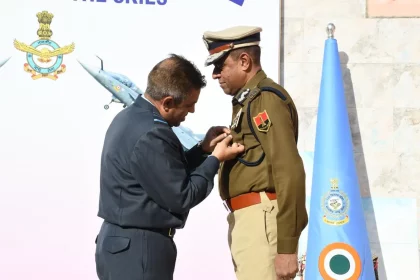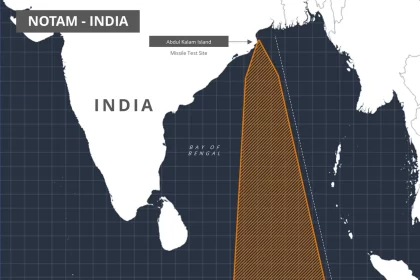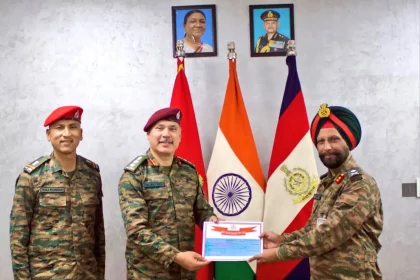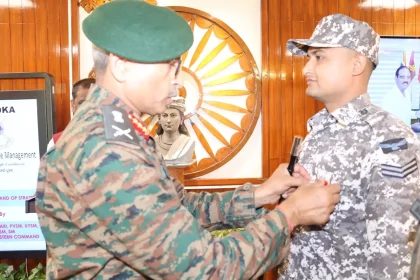Indian Military Academy Passing Out Parade 13 December 2025
This Passing Out Parade reinforces the Indian Army's commitment to producing capable leaders equipped to address contemporary challenges.
Lt Gen Dhiraj Seth Visits School of Artillery, Devlali; Reviews Advanced Training and PME Initiatives
Lt Gen Dhiraj Seth, GOC-in-C Southern Command, visited the School of Artillery, Devlali, to review training methodologies, PME initiatives and…
Air Marshal Nagesh Kapoor Reviews Operational Preparedness at AFS Jaipur, Presents CAS Commendation for Op Sindoor Support
AOC-in-C SWAC Assesses Readiness, Strengthens Civil-Military Ties and Honours Op Sindoor Support.
India Issues NOTAM for Long-Range Missile Test in Bay of Bengal, No-Fly Zone Extends Up to 3,550 km
Expanded Exclusion Zone Signals Full-Range SLBM Trial and Strengthening of India’s Sea-Based Nuclear Deterrent.
Uttarakhand Sub Area Provost Unit Awarded Provost Marshal Banner
Recognised for Excellence in Military Policing, Discipline and Operational Efficiency.
Lt Gen RC Tiwari Addresses HDMC-21 Participants at CDM, Highlights Joint Warfighting and Emerging Threats
Stresses Multi-Domain Operations, Agile Leadership and Technology Integration in Modern Warfare.

